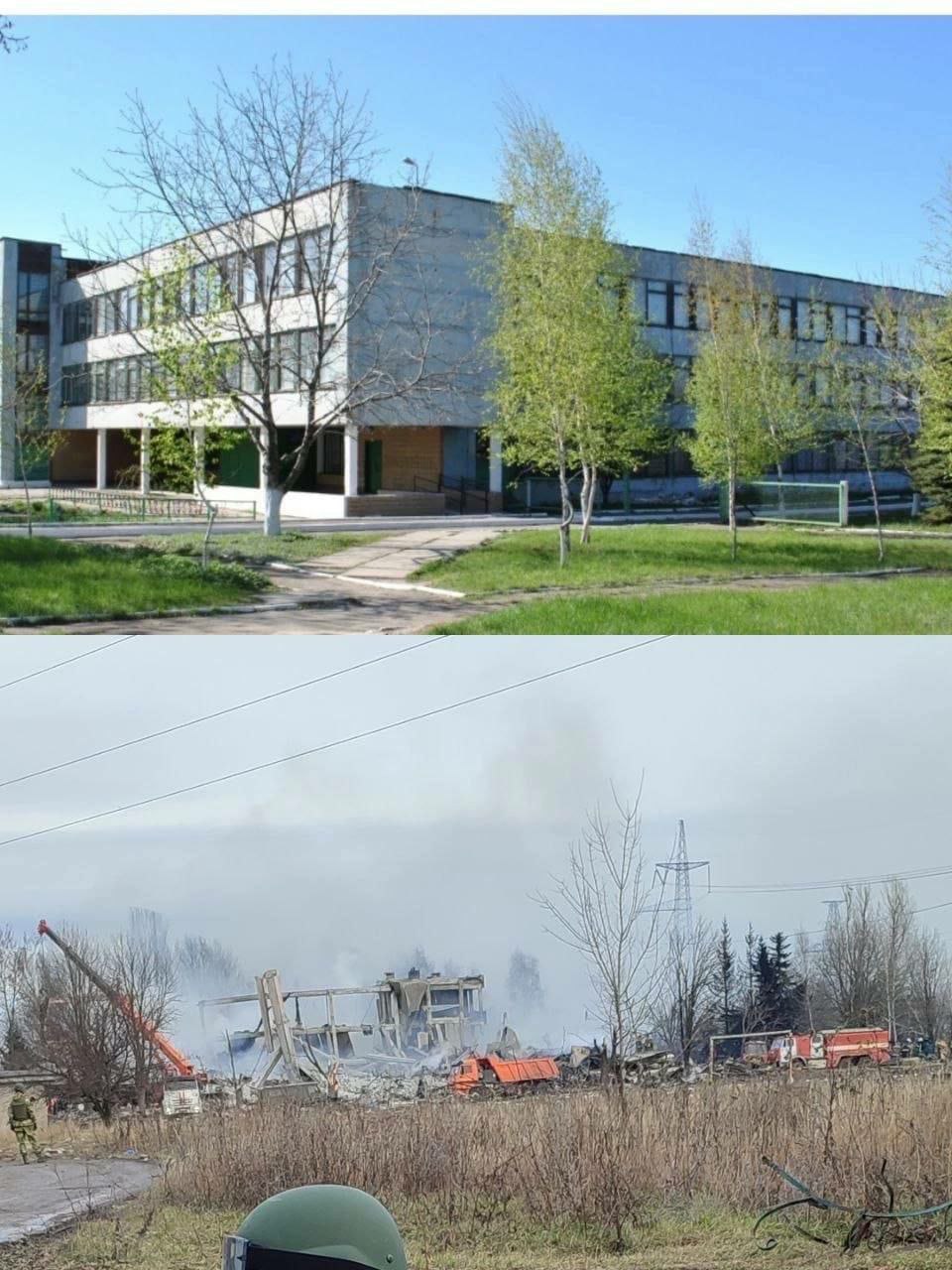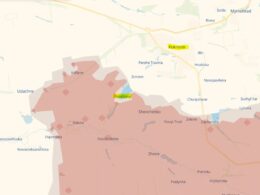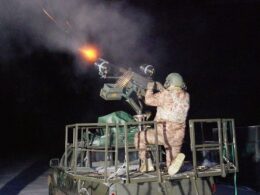A devastating Ukrainian HIMARS strike on a Russian base in Makiivka, Donetsk Oblast, on December 31 generated significant criticism of Russian military leadership in the Russian information space. The Ukrainian General Staff reported that a Ukrainian precision strike on a Russian manpower and military equipment concentration point in Makiivka destroyed up to 10 pieces of equipment but did not release an official casualty number as of January 2. The Department of Strategic Communications of the Ukrainian Armed Forces stated on January 1 that the strike killed 400 mobilized personnel and injured 300.
Geolocated footage published on January 1 also placed the aftermath of the strike at the Vocational School No. 19, fewer than 13km east of the frontline.
The Russian Ministry of Defense (MoD) acknowledged the strike, claiming that four of the six rockets killed 63 Russian servicemen. Samara Oblast Governor Dmitry Azarov confirmed that among the deceased servicemen are residents of the oblast, and some Russian sources claimed that 600 servicemen of a mobilization regiment were in the school building at the time of the strike. Some milbloggers claimed that the death count was about 110, with over 100 wounded personnel.
Satellite imagery of the damage to the Makiivka vocational school where allegedly hundreds of Russian troops were killed in a HIMARS attack on Dec 31 - Jan 1 https://t.co/xz3M7solOB pic.twitter.com/ZrRAr76gO9
— Euromaidan Press (@EuromaidanPress) January 3, 2023
The Russian MoD is likely attempting to deflect the blame for its poor operational security (OPSEC) onto Donetsk People’s Republic (DNR) "officials" and mobilized forces. DNR "law enforcement officials" told Russian state wires that the strike occurred when Russian servicemen violated operational security by using personal cell phones, allowing Ukrainian forces to conduct a precision strike at the base. Kremlin-leaning outlets and some milbloggers amplified the claim, stating that Russian forces should not underestimate the Ukrainian ability to exploit poor OPSEC practices on the frontlines and called on the Kremlin to introduce stricter guidelines on cell phone use among servicemen.
"Luhansk People’s Republic (LNR) Deputy Interior Minister" Vitaly Kiselyov amplified milblogger reports that military commanders are demanding the resignation of "DNR Head" Denis Pushilin. Some "DNR public officials" have also called for the punishment of the official who had decided to use the school. The Russian MoD may have deliberately relied on the DNR officials to blame OPSEC violations on mobilized servicemen for the attack in an effort to make the DNR the responsible party.
The Russian MoD’s vague acknowledgment of the strike generated criticism towards the Russian military command, however. Wagner-affiliated milbloggers stated that Russian military command had made it easy for the Ukrainian forces to strike several hundred servicemen in one location, calling the DNR explanation of cell phone usage a “lie.”
A former Russian officer had also stated that Russian forces stored ammunition in the school’s basement, enabling the devastating strike. Other milbloggers stated that the Russian command witnessed similar strikes throughout the past 11 months but were “criminally negligent” and failed to disperse the Russian forces quartered in Makiivka into smaller groups further in the rear.
Several milbloggers referred to a Putin statement about the necessity for the Ministry of Defense (MoD) to take accountability and listen to criticism on December 21 while calling on the Kremlin to punish the commander responsible for the OPSEC failures. Wagner financier and avid critic of the Russian military command, Yevgeniy Prigozhin, offered an uncharacteristic and vague comment about the situation — stating that he could not reveal how Wagner prevents similar OPSEC problems.
ISW previously reported on two other instances of mass milblogger criticism: the failed Russian river crossing in Bilohorivka in May 2022 and the botched Russian offensive operation on Pavlivka in October 2022.




